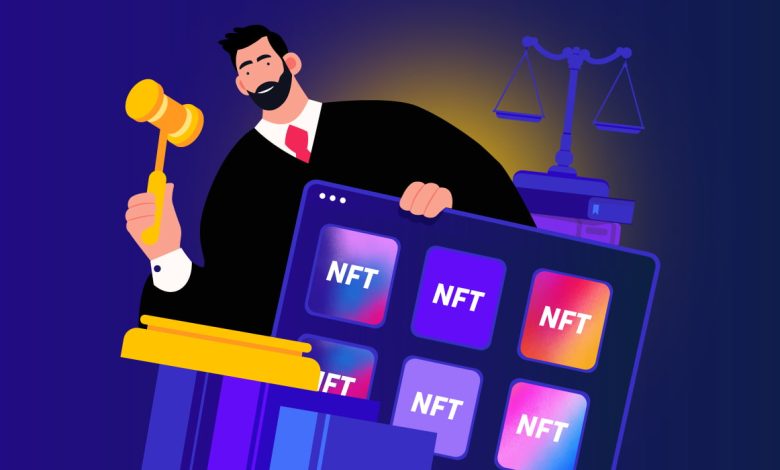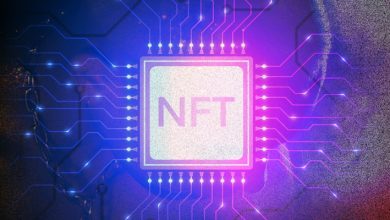Legal Considerations for NFT Ownership and Trading

- Understanding the legal framework for NFT ownership
- Key regulations to consider when trading NFTs
- Intellectual property rights and NFTs: What you need to know
- Tax implications of buying and selling NFTs
- Smart contracts and their role in NFT transactions
- Challenges and risks associated with NFT ownership and trading
Understanding the legal framework for NFT ownership
When it comes to understanding the legal framework for NFT ownership, it is essential to consider the various legal aspects that come into play. NFTs are unique digital assets that are gaining popularity in the world of cryptocurrency and blockchain technology. However, ownership of an NFT does not necessarily entail ownership of the underlying intellectual property rights.
It is important to understand that ownership of an NFT is governed by contract law and property law. The smart contract that accompanies an NFT dictates the terms of ownership and transfer of the asset. Therefore, it is crucial to carefully review the smart contract before purchasing or trading an NFT.
Additionally, intellectual property laws play a significant role in determining ownership rights associated with an NFT. Creators of digital artwork or other creative works retain copyright protections unless they expressly transfer those rights to the buyer through a licensing agreement.
Key regulations to consider when trading NFTs
When engaging in the trading of Non-Fungible Tokens (NFTs), it is crucial to be aware of key regulations that may impact ownership and transactions. These regulations can vary depending on the jurisdiction in which you are operating. One important consideration is the legal status of NFTs, as they may be classified differently in different regions. It is essential to understand how NFTs are viewed under the law to ensure compliance with relevant regulations.
Another important regulation to consider when trading NFTs is intellectual property rights. NFTs are often used to represent digital artwork, music, or other creative works. It is crucial to ensure that you have the necessary rights to buy, sell, or trade these assets. Violating intellectual property rights can lead to legal consequences, so it is essential to do your due diligence before engaging in any transactions involving NFTs.
Additionally, it is crucial to consider consumer protection laws when trading NFTs. These laws are designed to protect consumers from fraud, misrepresentation, and other unfair practices. When buying or selling NFTs, it is essential to be transparent about the terms of the transaction and to ensure that all parties are aware of their rights and obligations. Failure to comply with consumer protection laws can result in legal action and financial penalties.
Overall, when trading NFTs, it is essential to be aware of the key regulations that may impact ownership and transactions. By understanding the legal status of NFTs, respecting intellectual property rights, and complying with consumer protection laws, you can minimize the risk of legal issues and ensure a smooth trading experience.
Intellectual property rights and NFTs: What you need to know
When it comes to intellectual property rights and NFTs, there are several important considerations to keep in mind. NFTs are unique digital assets that can represent ownership of various items, including artwork, music, and even tweets. However, it is crucial to understand that owning an NFT does not necessarily mean owning the underlying intellectual property rights associated with the asset.
It is essential to recognize that the creator of the NFT retains the copyright and other intellectual property rights to the work, unless specifically transferred as part of the NFT sale. This means that while you may own the token representing the asset, you may not have the right to reproduce, distribute, or display the work without the creator’s permission.
Before purchasing an NFT, it is crucial to review the terms and conditions of the sale to understand what rights are being transferred as part of the transaction. Some creators may include a license that outlines how the NFT can be used, while others may retain all rights to the work.
Additionally, it is essential to consider the potential for infringement when buying or selling NFTs. If the underlying work includes copyrighted material owned by someone else, you could be at risk of legal action for copyright infringement. It is crucial to conduct due diligence to ensure that the NFT and the associated intellectual property rights are legitimate and properly transferred.
Tax implications of buying and selling NFTs
When it comes to buying and selling NFTs, it is important to consider the tax implications that may arise. The IRS treats NFTs as property, which means that any gains made from selling them are subject to capital gains tax. This tax is calculated based on the difference between the purchase price and the selling price of the NFT. It is essential for NFT owners to keep detailed records of their transactions to accurately report their capital gains to the IRS.
Smart contracts and their role in NFT transactions
Smart contracts play a crucial role in NFT transactions by automating the process and ensuring that all parties involved adhere to the terms of the agreement. These self-executing contracts are stored on a blockchain and automatically enforce the terms of the agreement when certain conditions are met. This eliminates the need for intermediaries and reduces the risk of fraud or disputes.
When it comes to NFT ownership and trading, smart contracts can help streamline the process by providing a secure and transparent way to transfer digital assets. By using smart contracts, buyers and sellers can be confident that the transaction will be completed as agreed upon, without the need for a third party to oversee the process.
One of the key benefits of using smart contracts in NFT transactions is the ability to program specific conditions into the contract. For example, the contract can specify how the NFT will be transferred, when it will be transferred, and under what circumstances the transaction will be considered complete. This level of automation helps to reduce the risk of human error and ensures that the transaction is carried out efficiently.
Overall, smart contracts are an essential tool for ensuring the legality and security of NFT transactions. By automating the process and providing a transparent way to transfer digital assets, smart contracts help to protect both buyers and sellers in the fast-growing world of NFT ownership and trading.
Challenges and risks associated with NFT ownership and trading
When it comes to NFT ownership and trading, there are several challenges and risks that individuals need to be aware of. These factors can impact the value and security of NFTs, making it crucial for collectors and investors to understand the potential pitfalls.
- One of the main challenges associated with NFT ownership is the lack of regulation in the market. This can lead to uncertainty regarding the legal status of NFTs and the rights of owners.
- Another risk is the potential for fraud and counterfeiting in the NFT space. Without proper due diligence, individuals may unknowingly purchase fake or stolen NFTs.
- Additionally, the volatile nature of the cryptocurrency market can impact the value of NFTs. Fluctuations in crypto prices can result in significant financial losses for NFT holders.
- Moreover, the complexity of smart contracts used in NFT transactions can pose a security risk. Vulnerabilities in the code can be exploited by hackers to steal or manipulate NFTs.
Overall, while NFTs offer exciting opportunities for creators and collectors alike, it is essential to approach ownership and trading with caution. By understanding the challenges and risks involved, individuals can take steps to protect their investments and ensure a positive experience in the NFT market.



